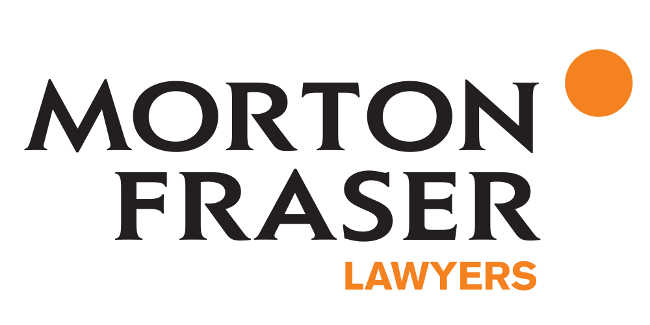Richard McMeeken: Unfair prejudice and discretionary decisions of directors

Richard McMeeken
Richard McMeeken considers the scope of director’s discretion and how this has been dealt with by the courts.
The duties incumbent on company directors are much talked about at the moment following the Supreme Court’s judgment in BTI 2014 LLC v Sequana SA and others [2022] UKSC 25 clarifying the existence and scope of the so-called “creditor duty”, obliging company directors to consider the interests of the company’s creditors as well as its members when insolvency threatens the company. However, the scope of directors’ duties can be equally contentious in relation to the manner in which they are exercised as against the members themselves. This is a common theme in petitions under section 994 of the Companies Act 2006 in terms of which members of the company (usually, but not necessarily, minority members) can seek redress against the company and its directors for unfairly prejudicial treatment.
In the majority of cases under section 994, what is being complained of is a breach of the articles of association of the company. The directors being accused of acting outwith the bounds of the express authority given to them by the company’s members. Typically, the members will only be able to complain of unfairness where there has been a breach of the express terms of the articles (see O’Neill v Phillips [199] 1 WLR 1092 and Gray v Braid Logistics [2015] CSOH 146). But the courts have developed section 994 in such a way that directors can be liable for unfairly prejudicial conduct even if they are acting within their strict legal powers. That development has come primarily as a result of the implication of terms.
The basis for implication is that the terms on which the members and directors agreed to do business together includes an agreement that the directors will perform their fiduciary duties, now found in sections 171-177 of the Companies Act 2006. Accordingly, non-compliance with these duties can found an unfair prejudice claim. Of particular interest are the duties found in sections 171 and 172 of the 2006 Act. Section 171 imposes a duty on the directors to act in accordance with the company’s constitution and exercise the powers for the purposes for which they are conferred. Section 172 imposes a duty to act in good faith and in the interests of the company. Section 170 makes it clear that both duties are to be interpreted in accordance with common law principles and equity, the latter being more likely to be relevant in the context of actings by directors in a quasi-partnership (Ebrahimi v Westbourne Galleries [1973] AC 360).
Directors are, of course, in exercising their powers under the articles, fixed with significant discretion as to how to do so. That discretion is never absolute, even where the articles suggest otherwise. As the late Professor Dworkin observed, contractual discretion is “like a hole in a doughnut - it does not exist except as an area left open by a surrounding belt of restriction” (R Dworkin¸ Taking Rights Seriously, Harvard 1977). The limits of the discretion are best put by Rix LJ in the well-known Socimer International Bank Ltd v Standard Bank London Ltd [2008] EWCA Civ 116 in which he said “a decision-maker’s discretion will be limited, as a matter of necessary implication, by concepts of honesty, good faith, and genuineness, and the need for the absence of arbitrariness, capriciousness, perversity and irrationality. The concern is that the discretion should not be abused”.
However, the court should be slow to interfere with the exercise of a director’s discretion. Of course there are cases in which irrationality can be objectively demonstrated (Braganza v BP Shipping Ltd and another [2015] 1 WLR 1661). But the prima facie assumption is that directors act in good faith and for proper purposes and the onus is on the petitioning member(s) to prove the contrary (Village Cay Marina v Acland [1998] BCC 417). Proving bad faith or that a director has acted for an improper purpose has been described by the courts as “a notoriously difficult task” and, as Bowen LJ put it (somewhat dramatically) in Ex parte Hill (1883) 23 “…If we are to consider whether amongst all the shadows which pass across a man’s mind, some view as well as the dominant view influenced him to do the act, we shall be embarking on a dark and unknown voyage across an exceedingly misty sea”. To put it more prosaically, directors will often act for a number of different purposes which may be a little hard to disentangle.
A good example of all of this in practice is the provision often found in the articles (particularly in smaller companies or quasi-partnerships) giving the directors an “absolute and unqualified right” to refuse to register a transfer of shares (as was the case in Re Smith & Fawcett [1942] Ch 304). How does the court approach the exercise of discretion under that sort of provision? Evidence would, of course, need to be led by the member as to why the decision was an unlawful exercise of discretion in breach of the director’s fiduciary duties. But again, courts should be slow to interfere with a refusal under these provisions having careful regard to the purpose of the provision. It is often the case that the decision will benefit the director personally but that ought not to be determinative and is often incidental to the purpose for which the power to refuse was exercised. The reasons given for the refusal (which are mandatory under section 771 of the 2006 Act) may shed some light on the purpose for which the power was exercised or whether the decision was made in good faith. But judges have to be cautious before giving too much weight to the reasons. They are just part of the evidential material upon which the question before the court has to be answered. Bad reasons should not necessarily be equated with bad faith nor, in turn, with unfairly prejudicial treatment. Often a reason such as simply not wanting to transfer shares to a stranger will be sufficient justification in the case of a smaller company (Charles Forte Investments Ltd v Amanda [1984] Ch 240).
Ultimately, such cases raise difficult questions for the courts about the scope of a director’s discretion, exercise of their fiduciary powers and the proper limits of the court’s own discretion to interfere with the director’s decision. Perhaps this coming year (either north or south of the border) the Supreme Court will provide guidance on that issue as well.

Richard McMeeken is a partner and solicitor advocate at Morton Fraser







